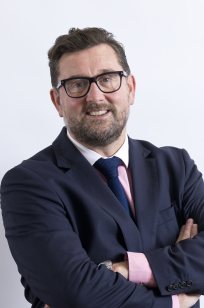Comment / Financial dilemma
This year is difficult, next year will be even harder. That is the simple headline from the HFMA survey of NHS finance directors, published just ahead of this year’s annual association conference.
On its own, that may not  be very surprising – certainly not to a finance community that is already embroiled in delivering this year’s financial position and nervously eyeing inflation and other cost pressures ahead of 2023/24. But the survey detail reveals some deeper concerns – particularly around how we continue to invest in transformational programmes.
be very surprising – certainly not to a finance community that is already embroiled in delivering this year’s financial position and nervously eyeing inflation and other cost pressures ahead of 2023/24. But the survey detail reveals some deeper concerns – particularly around how we continue to invest in transformational programmes.
The autumn statement provided an important boost in NHS funding for the next two years above the spending review settlement.
And crucially, it also increased funding for social care, which it is hoped will help to improve NHS capacity as fit patients can be discharged more rapidly.
But the extra funds will not cover all the cost pressures facing the NHS. We are already seeing the real impacts of more than 10% inflation in contracts for goods and services. And utility costs remain a major issue.
It is also not news to hear that workforce pressures are front and centre in finance directors’ minds.
Temporary staffing costs are one part of this, as providers look to cover for high vacancies, which have worsened but pre-exist the pandemic, and also cover for Covid-driven staff absences.
Bearing down on these costs is as much about improving retention and recruitment as it is about agency caps and framework contracts.
And that is tied up with training the right numbers of healthcare professionals, and with staff satisfaction around terms, conditions and work-life balance – something the current industrial unrest suggests we haven’t got right.
One less obvious concern is that finance directors have identified wider programmes – involving prevention, population health and tackling health inequalities – as being most at risk from financial pressures next year. (Investment in staff training, upskilling and development was also seen as at risk, which is not going to help those workforce pressures we were talking about.)
In some ways, this is completely understandable – although it reflects finance directors’ views before the new funds were announced.
There is a huge focus on the elective backlog, a major need to meet a massive demand for mental health services, and an urgent requirement to support primary care.
How can NHS systems not meet the demand already at their front door?
But transformation is how we end the cycle of annual firefighting and move towards a sustainable NHS. Investing in prevention or adopting population health management approaches to tackle the wider determinants of health will have some quick wins, but they are mostly about reducing demand in future years and helping to deliver a healthier, more productive population.
Addressing health inequalities is the right thing to do. It may increase some activity in the short term, but it will lead to longer term savings as people are treated earlier. And it is a simple issue of equity.
This is one of the many challenges for finance teams working with their frontline teams – how do we get the balance between funding the demands of today and investing in the solutions that will move us towards the health service we need in the future?
The solutions will be found in working together as systems, looking at ways to optimise whole pathways of care to deliver the best outcomes for patients at the best value to the whole system.
The finance role will often be to identify how the costs and benefits can be equalised across all system partners. We need to be supported by the centre.
Capital, for example, in sufficient quantities and allocated in a timely way, will be vital to the whole agenda.
It will not be easy. But it is what we need to do.
Lee Bond is the HFMA president
Related content
We are excited to bring you a fun packed Eastern Branch Conference in 2025 over three days.
The value masterclass shares examples of organisations and systems that have pursued a value-driven approach and the results they have achieved.